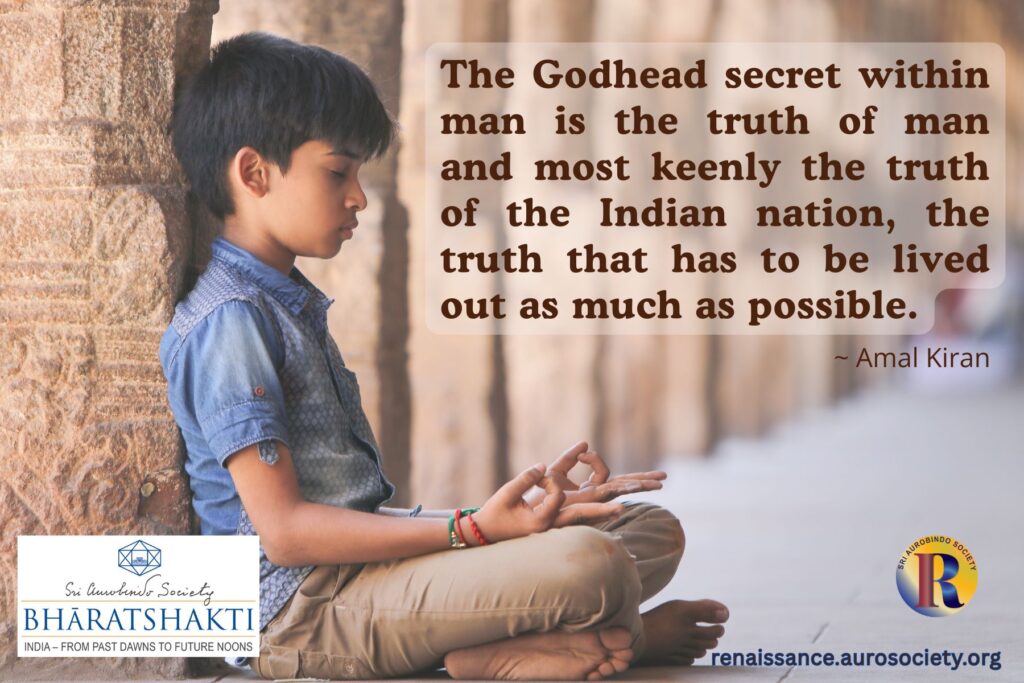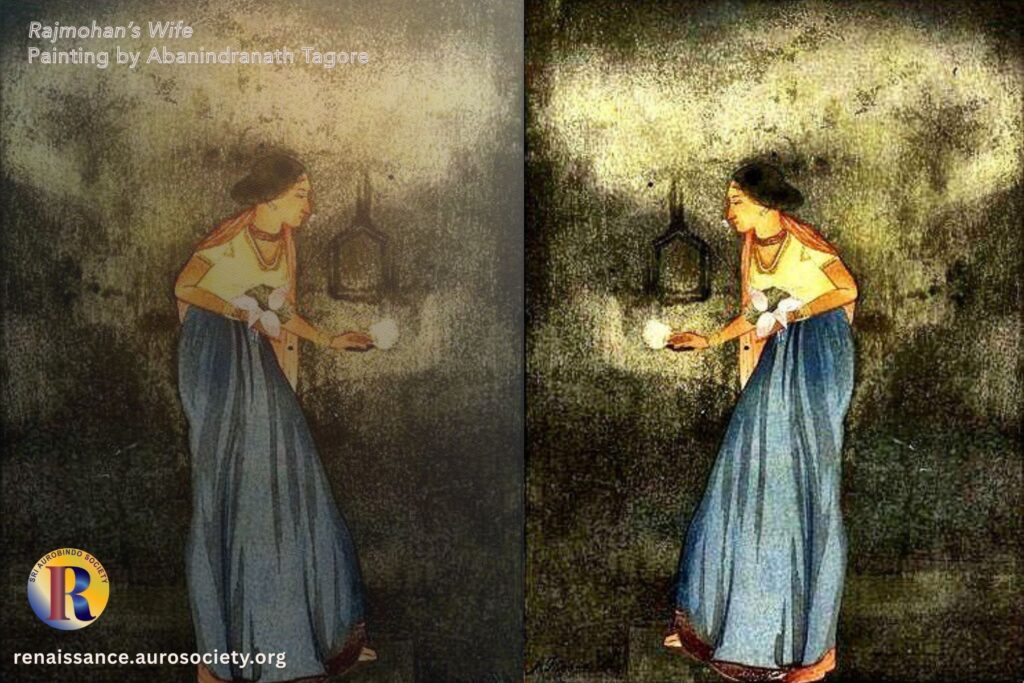Maharshi Vyas has portrayed several strong characters on the vast canvas of Mahabharat. One such character is of Kunti, especially remarkable for her heroic motherhood. A story of Mahabharat tells us ‘Yato Dharmastato Jayah”, where there is Dharma, there is victory. The victory of Pandava side in Kurukshetra war represents a dawn of Dharma. And it may be said that this victory is, in many ways, a result of Kunti’s conscious parenting in a dusk of hardships.
Kunti is a single mother who raised five sons, collectively known as Pandava-s, sons of their father, Pandu. Among them were included twins born of Madri, Pandu’s second wife. Kunti is indeed very loving and caring towards the twin sons of Madri. Since the death of Pandu and Madri, she brings up all Pandavas together as her own sons. She acts as a palm – a source of energy and support into which five fingers representing Pandava can be curled to make a fist.
Kunti is fully aware of the force that her five strong and virtuous sons can become if they are firmly united. She has named all five sons as Pandava; not Kaunteya or Madreya – which could give rise to a sense of difference or even discrimination. Kunti with her great foresight recognizes that the only way the five brothers will get their rightful inheritance is through their unity. She knows that Duryodhana will certainly take advantage of any spilt between Pandava-s and push them away from their rightful inheritance.
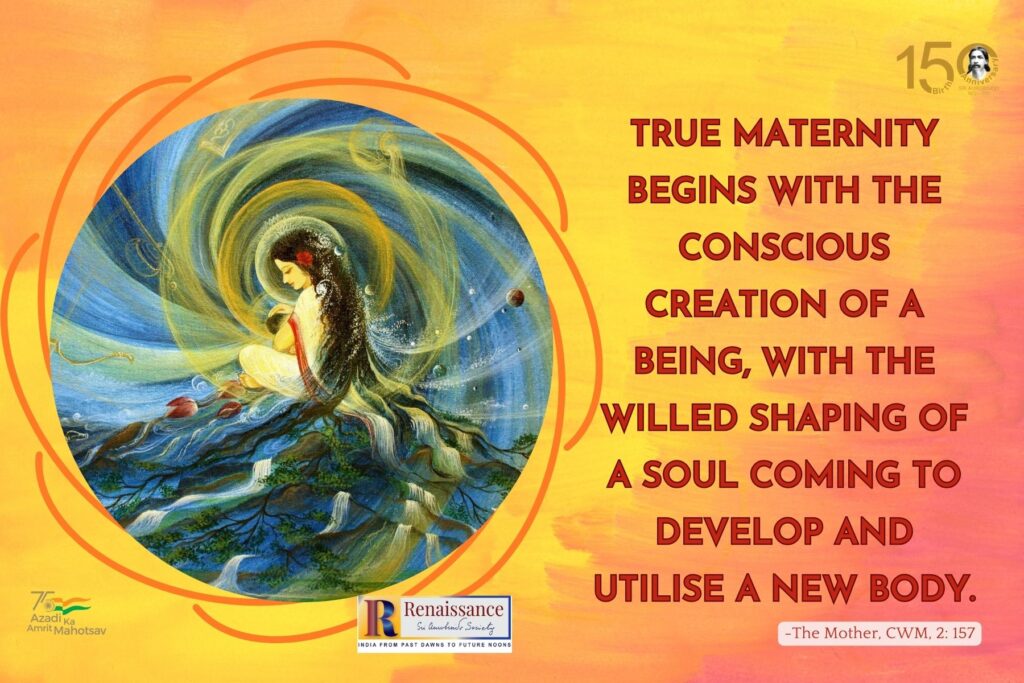
Raising Children in a Hostile Environment
After a death of Pandu and Madri, Kunti goes back to her in-law’s home, the royal palace of Hastinapur. But she realizes soon that while the common people of the kingdom admire the virtues of her sons, King Dhritrashtra’s sons, collectively known by the name Kaurava-s, under the leadership of their eldest brother Duryodhana and maternal uncle Shakuni look at her sons as their archrivals. Kaurava brothers are envious of their cousins Pandava-s and always seek to humiliate them.
Kunti brings up her sons in this hostile environment where her nephews try to find every chance to knock down their cousins. The others in the family either support Kaurava-s or just overlook their behavior. She does not receive any support from her paternal home. Neither her adoptive father nor her biological father cares about her whereabouts. A widowed daughter is an unwelcome proposition for them, perhaps. Yet Kunti remains strong throughout this challenging time, and thus stands out as a role model for all mothers.
Although apparently Kunti never raises her voice against the wrong done in the royal palace, she fights her battle silently. She guides her sons through all their endeavors and teaches them to stand for own dignity.
Kunti should be considered as one of the prominent warriors of the Kurukshetra war because it is she who has instilled the virtues of courage and truthfulness in the great warriors that Pandava-s become. With her great warrior instinct, Kunti has given birth to three fierce and supreme warriors – Arjun, Bheema and Karna. And with her great political sense and knowledge of Dharma, she has given birth to the best ethical ruler of the world – Yudhishthira.
As a mother, Kunti is conscious of her influence in shaping the character of her five sons. She always lives by Dharma guides her sons to follow the path of Dharma. Kunti teaches her sons right values such as holding on to truth, righteous conduct, and solidarity, all of which are of utmost importance for adherence to Dharma. Krishna takes the Pandava side in the Great War because of the fact that they are followers of Dharma and guides them towards victory. If Pandava brothers are pillars of Dharma, their mother Kunti is the foundation.
The utmost respect and obedience that characterise Pandavas’ relation to Kunti is a tribute to her character and her motherhood. Kunti fits into the Indian canon for an ideal mother. She is admired for her remarkable strength as she raises her sons as a single mother.
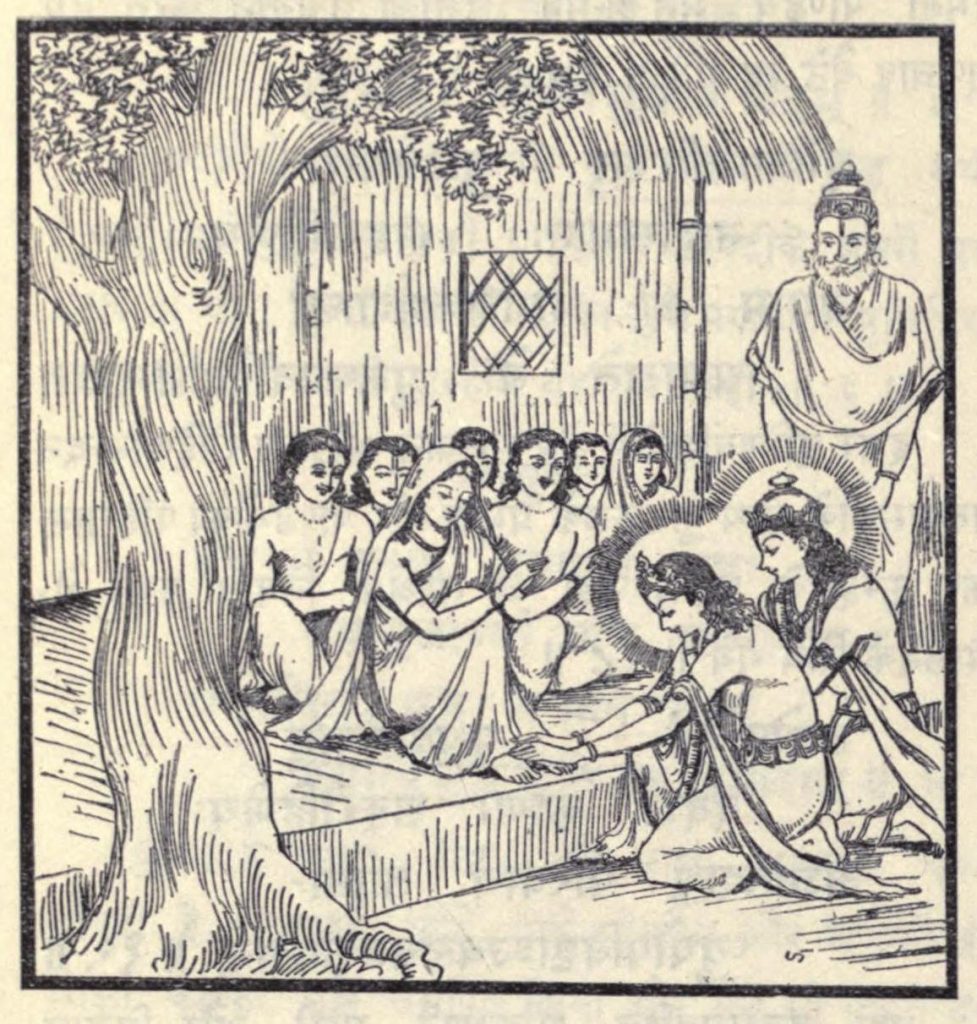
In Praise of Single Motherhood
An interesting and important detour to take at this point will be to explore the question – is it possible that Kunti’s single parenting has actually helped her give a better upbringing to her sons?
Greed, ambition and desire for material pleasures are traits which are generally more aggressive in nature and are seen more commonly in men. Especially in a royal household, where authority and social predominance reside mostly in men, children get largely influenced by their behaviour. They quickly develop a sense of possession over their father’s holdings. These behaviour patterns leave strong impression on the children’s character, especially during their formative years. And when indulged excessively can easily lead to children getting spoilt.
In the Indian cultural tradition, two women, Jijabai and Kunti, who are considered as epitome of successful motherhood share the common fact of single-parenting. (We may also add the name of Sita in this list).
On the other hand, the Kaurava-s, the sons of Gandhari have gotten spoilt primarily due to the influence of their father who is authoritative and also extremely possessive and ambitious.
Also, we observe often that a mother is generally more concerned about her child’s moral-ethical development. She has more patience when dealing with such matters, helping the child learn gradually. Often when two parents have divergent opinions about the upbringing of a child, it can actually adversely affect the child’s development. Furthermore, many a times in a male-dominant society, a mother is compelled to retreat and has to let her husband go ahead with what he thinks is right.
In case of Kunti, because of the absence of other influences – except Bhishma and Vidur to some extent, who themselves are highly virtuous but also somewhat aloof because of their loyalty to King Dhritrashtra – her influence on her children is most direct and strongest. She passes on her virtuous character to her children. Her story suggests that freedom from conventional or familial pressures helps a mother give better upbringing to her child.
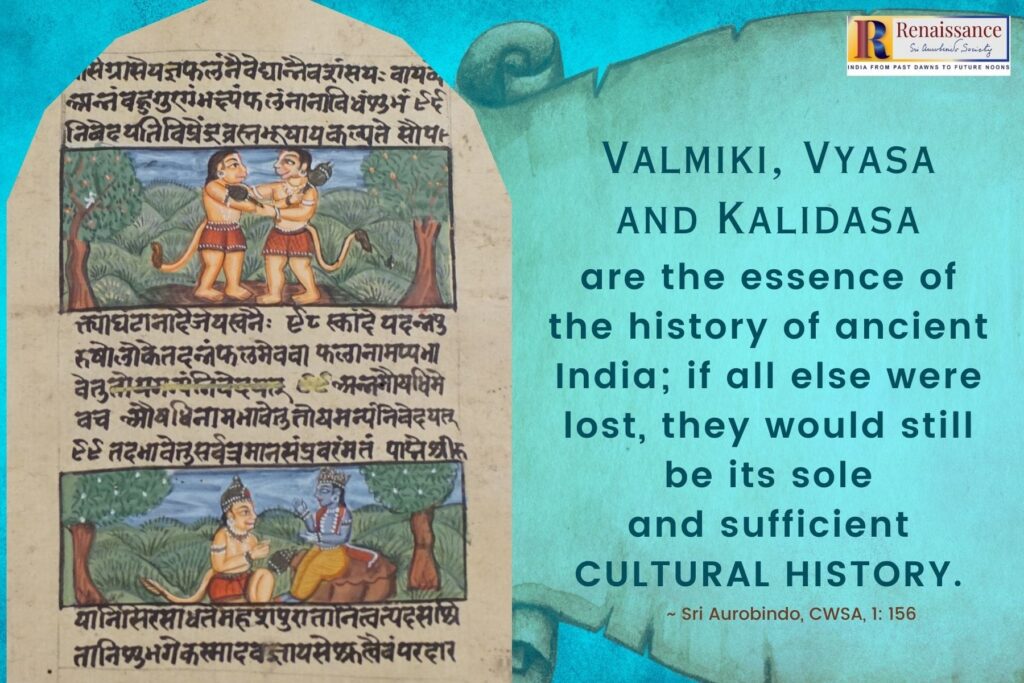
Not Dominating but Takes Charge When Necessary
Kunti as a mother is never dominating but she takes charge of a situation whenever required. In an hour of need of her sons, she demonstrates great audacity of actions. Second time in her life when she is sent out of the royal palace of her in-laws, this time along with her sons, she realises that her sons need her guidance and motivation to face the adversities.
When Kunti comes to know about the scheme of Kaurava brothers to burn Pandava-s alive in the House-of-Lac at Varanavata, this strategist mother guides her sons to plan for their escape. After the escape from Varanavata, Kunti and her sons live an incognito life. Even during this adverse time, Kunti keeps her morale high and becomes a source of motivation for her sons. This strong mother encourages her sons to walk on the path of progress in life, even amidst the adversity. This shows unbending character of Kunti.
During this difficult time Kunti and her sons have to face many hardships.
However, this courageous mother not only faces all the challenges bravely, but with her great ability turns these challenges into new opportunities. She provokes Bheema for killing demon Hidimba. Kunti recognises that this demon’s sister has fallen in love with Bheema. With her farsightedness, she takes an initiative to turn this love in a formal relationship. By doing this Kunti capitalizes on an opportunity to build an alliance for her family.
This visionary woman anticipates that having a son from this alliance would be a great help for Pandavas. It also shows that as a mother Kunti is not afraid of treading the unconventional paths for the well-being of her sons. Ghatotkacha, the fruit of this union, is an important instrument in the victory in Kurukshetra war.
The Great Strategist
Another distinguishing aspect of Kunti’s character is that she is a great strategist. When Arjun wins Draupadi’s hand at the swayamvar and brings her home for the first time, Kunti orders that as always whatever has been brought be shared among five among bothers. The ever obedient, all five brothers get married to Draupadi. Kunti thus ensures that five sons are welded in a single hole.
Following Rajasuya sacrifice when Duryodhana conceives of tricks to split the Pandava brothers, Karna warns him that all efforts to break the unity among the Pandavas would be in vain since they are all married to Draupadi. This remark of Karna shows how a mother’s decision is instrumental in the success of her sons. Krishna brings in various strategies in the battlefield of Kurukshetra to bring victory to the Pandavas, but it may be said that this one strategy of Kunti had won half of the battle already!

Wisdom to Let Go
Hereafter, Kunti withdraws; she lets Draupadi to take charge and come in the limelight. This shows Kunti’s wisdom to let things go. This also shows distinguished character of Kunti as a mother. She brings up her sons single-handedly while fighting against all the odds; but she does not claim any kind of acclamation for that. She is a wise woman who recognizes that after an equally intelligent daughter-in-law enters the family, it is correct not to interfere in the marital life of sons.
To this day we observe that many a time a mother-in-law is not ready to retreat into the background; she is not ready to give up her status as the queen of the household to the daughter-in-law. This situation creates conflicts in the family. Kunti being a mature and wise mother perceives that such conflicts will ultimately hamper the wellbeing and unity of her family. In return, she actually commands greater respect from her sons as well as her daughter-in-law.
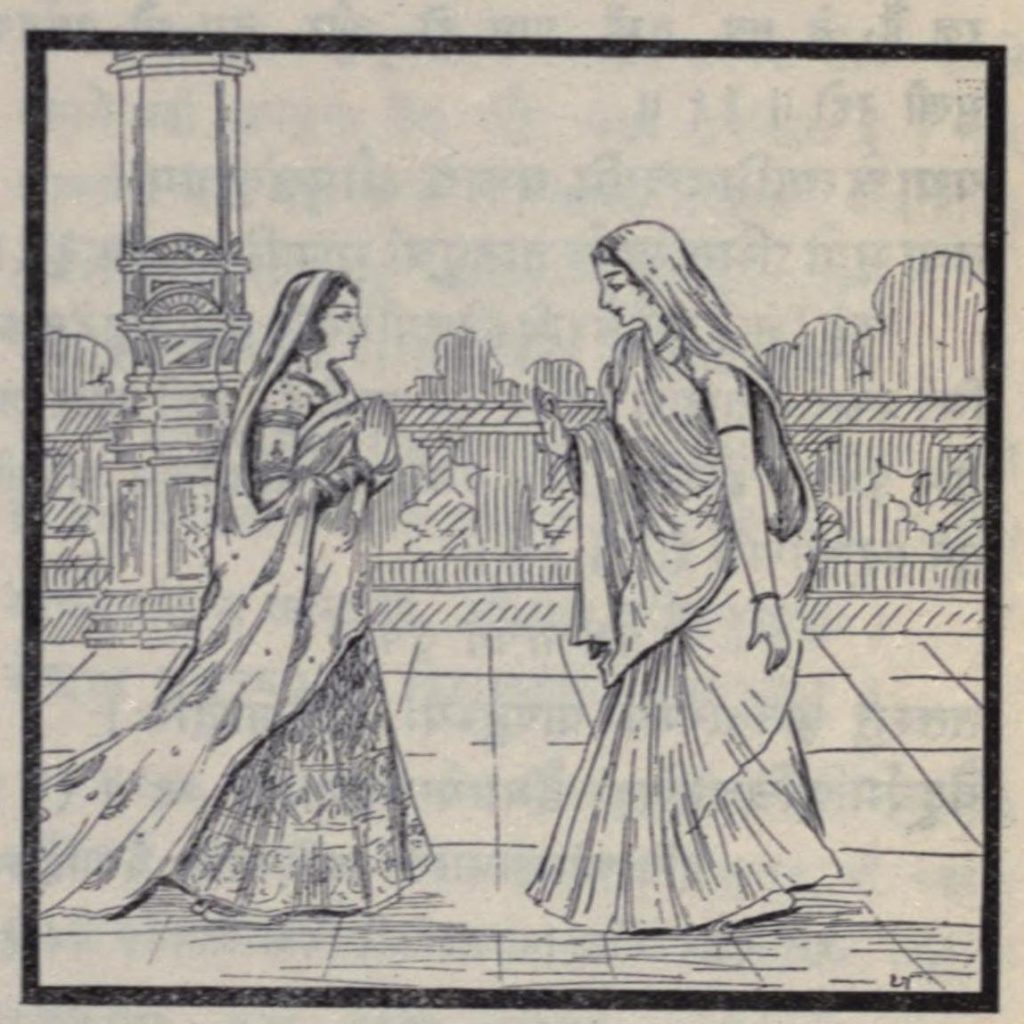
Symbol of Patience, Sacrifice and Forbearance
After marriage of Draupadi, Kunti thinks that she can now look forward to a quiet life. However, the task of conscious parenting is relentless. After being cheated and defeated in the game of dice, when the Pandava brothers are Draupadi are forced to go in the exile, Duryodhana denies Kunti permission to go along with her sons and daughter-in-law. He knows that Kunti is a great source inspiration and support to Pandavas. This iron-willed mother can build a palace for her sons and daughter-in-law even in the forest.
Kunti stays back in Vidura’s house. Here again, Vyasa portrays the heroic motherhood of Kunti who withstands the downfall of her sons, lives among the enemies and witnesses their prowess and prosperity. On an emotional level, this is the toughest level of endurance and Kunti faces all that alone. At the same time, Kunti remains a silent but constant and visible reproach to Kuru about her sons’ violated rights.
Kunti as a mother, is an epitome of Sattva – a symbol of patience, sacrifice and forbearance.
At the same time, through her actions she shows that patience does not mean tolerance of injustice; sacrifice does not mean allowance to violation of own rights and forbearance does not mean nonresistance against devil acts.
Therefore, when Krishna comes as peace ambassador in Hastinapur and visits Kunti, she sends message that her sons must fight for their rights. She motivates her sons to recover their rightful inheritance. She berates Yudhishthira through Krishna for the situation she lands up in her life where she, a mother of virtuous five, has to live at mercy of others in Vidura’s home.
This heroic mother cannot see that the merits of her sons waste away. She inspires her sons to redeem family honor. This shows an unbending will and a true fighting spirit. This glorious mother does not simply crave for revenge. Her true reason for motivating her sons to go to war is that nobody in the world should raise finger at any of her sons as coward. She wants each of them to be recognized for their valor and merits.
There are few more interesting passages in the Mahabharat than the conversation of Vidula with her son. It comes into the main poem as an exhortation from Kunti to Yudhisthir to give up the weak spirit of submission, moderation, prudence, and fight like a true warrior and Kshatriya for right and justice and his own.
***
~ from Sri Aurobindo’s note which appeared with his translation of Vidula which first appeared in the weekly ‘Bande Mataram’ on 9 June 1907 under the title “The Mother to her Son”.
(CWSA, Vol. 5, Notes on the Texts)
Greatness of Character
The victory of Pandava side in Kurukshetra war is a fruit of the seeds planted and nurtured by Kunti through her conscious parenting. After life-long battle of endeavors and pains, when Kunti should be enjoying the success of her sons, she decides to join Dhritarashtra and Gandhari for retirement in the forest. This brings greatness of Kunti’s character.
Despite her life-long efforts to make her sons get their rightful inheritance, Kunti has no emotional attachment to the results of her efforts. She possesses no greed of eating the fruits of her labour. She is the one who enjoys the nurturing and is content that the fruits delivered out of the same are enjoyed by others. This is a key to conscious parenting; as a parent we all must be mindful that ‘karmanyewadhikaraste ma phaleshu kadachan’.
Also read:
Our ongoing series – Sri Aurobindo’s Interpretation of Indian Culture through the Two Epics

About the author:
Shruti Hajirnis Gupte is the author of ‘Mahabharatee — Five women who held court before the war’, a historical fiction based on the Mahabharata written from a female perspective. A chartered accountant by profession she works in the corporate sector. She is also a classical dancer and disciple of renowned Bharatnatyam exponent Dr. Sucheta Chapekar. A lover of literature, a connoisseur of French and Sanskrit, Shruti is mother to a five-year-old boy and works hard to give him a culturally grounded upbringing.

~ Design: Beloo Mehra

